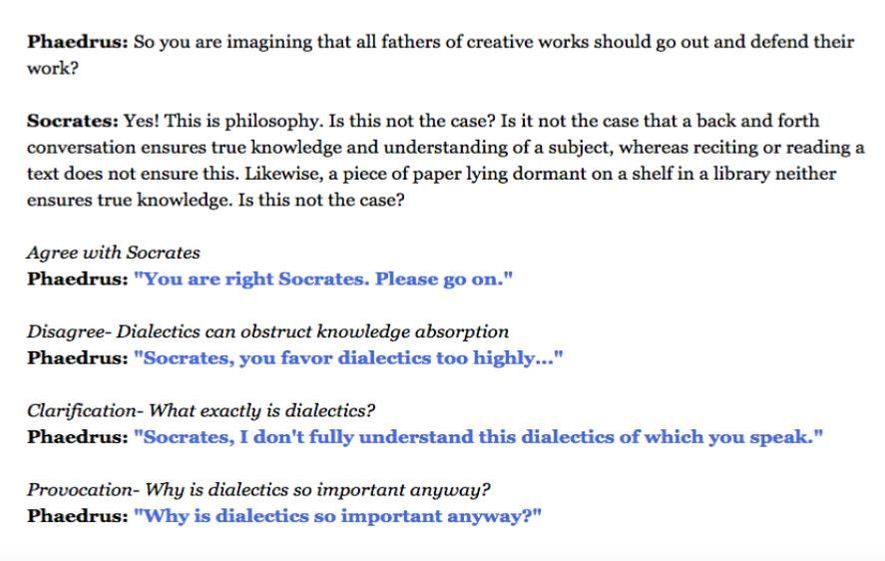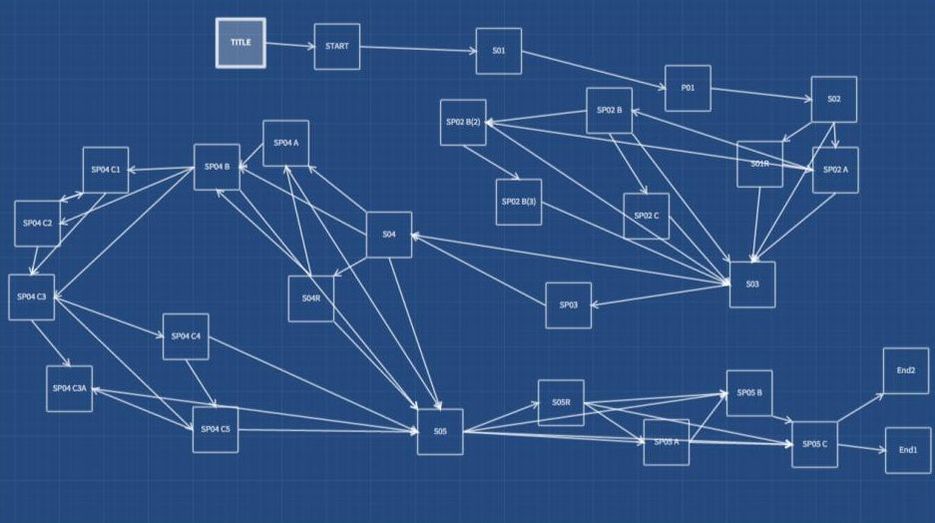Plato’s Phaedrus: a Memory Pharmacy
A rhizomatic dialogical game whereby players engage in a procedure of enacting verbal dialectics upon an interactive text that is interspliced with both Platonic passages and transcriptions of contemporary interlocutor's dialectical analysis upon the Phaedrus. The game is played on Twine, an open-source tool for non-linear storytelling. Players choose a character, either Socrates or Phaedrus, and begin by reading aloud scripted lines of the Platonic text. As the dialogue continues, it becomes unclear if the text has departed from the original Platonic dialogue as the content mixes in anachronisms and the style veers upon the colloquial. Soon conversation choices are introduced as players can choose which line to speak aloud, and thereby steer the dialogue in different conversational directions. The game itself guides players down conversation pathways that discuss the philosophical foundations of writing and textuality, literature and electronic literature, and ends by forcing players to make a choice asked of Socrates in the text – to choose between writing on a soul (a virtual, non-inscribed, potentially eternal form of writing) vs writing on an inscriptive platform (a potentially decaying yet sensible material)
PLAY: https://phaedrus.neocities.org/MP.html
A rhizomatic dialogical game whereby players engage in a procedure of enacting verbal dialectics upon an interactive text that is interspliced with both Platonic passages and transcriptions of contemporary interlocutor's dialectical analysis upon the Phaedrus. The game is played on Twine, an open-source tool for non-linear storytelling. Players choose a character, either Socrates or Phaedrus, and begin by reading aloud scripted lines of the Platonic text. As the dialogue continues, it becomes unclear if the text has departed from the original Platonic dialogue as the content mixes in anachronisms and the style veers upon the colloquial. Soon conversation choices are introduced as players can choose which line to speak aloud, and thereby steer the dialogue in different conversational directions. The game itself guides players down conversation pathways that discuss the philosophical foundations of writing and textuality, literature and electronic literature, and ends by forcing players to make a choice asked of Socrates in the text – to choose between writing on a soul (a virtual, non-inscribed, potentially eternal form of writing) vs writing on an inscriptive platform (a potentially decaying yet sensible material)
PLAY: https://phaedrus.neocities.org/MP.html


